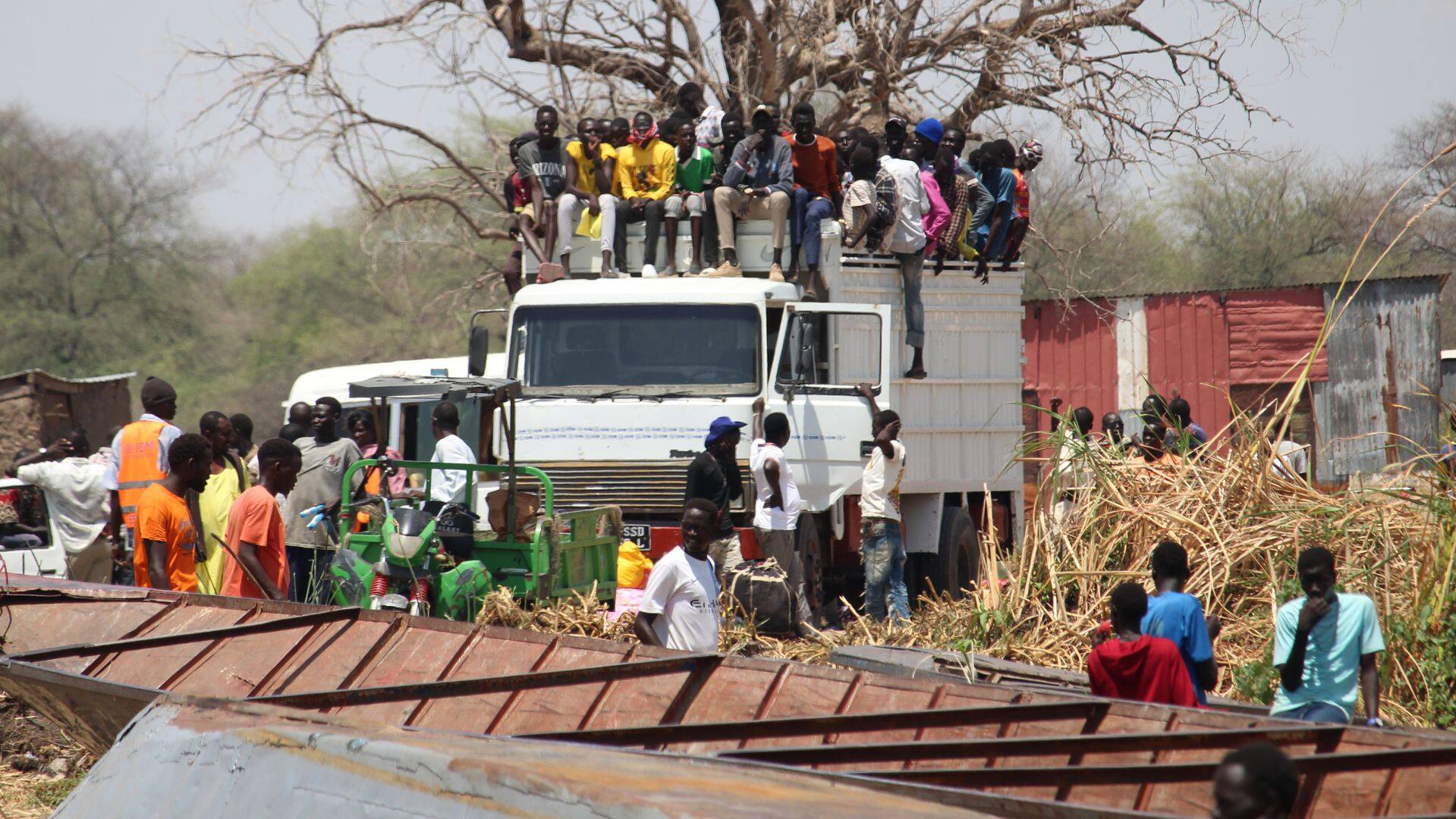Sitting in his Montreal living room, Yasser Essa scrolls through his call log, trying each member of his family in Darfur, Sudan. Sometimes, he gets an automatic message, saying the number he’s calling is out of coverage. Other times, the call doesn’t even go through.
Thank you for reading this post, don't forget to subscribe!Essa doesn’t know if his parents, sisters, friends or even his wife are still alive. He had been trying to bring them to Canada before the conflict erupted.
He hasn’t talked to his loved ones for a month now. He’s been trying every day to reach them.
“I don’t know where they are, what is happening to them. And all that I’m hearing from the place they are living is just the place is surrounded and under siege,” Essa said.
Before conflict broke out in Sudan more than two months ago, Essa said he would talk to his loved ones regularly. Now he just gets trickles of information from social media, he said, each drop more horrifying than the last.
A ceasefire began this week between Sudan’s army and its rival paramilitary group Rapid Support Forces (RSF). It’s a delicate truce, though; several have been brokered — and broken — throughout the conflict.

The power struggle between the two sides has turned the capital, Khartoum, into a war zone plagued by looting, led to outbursts of fighting in other regions, and triggered a sharp escalation of violence in Darfur in western Sudan.
More than half of Sudan’s 49 million people now need humanitarian assistance, the United Nations said, with more than 500,000 people fleeing into neighbouring countries. Nearly 1.7 million have been internally displaced.
In Darfur, some worry history may be repeating itself. The region was at the centre of allegations of genocide and war crimes in the mid 2000s.
Alice Wairimu Nderitu, the UN special adviser on the prevention of genocide, says there are indications some violence being reported now could again amount to war crimes.
“We have accounts of door-to-door killings, of people being forcibly displaced, and really indiscriminate violence — not just of fighters, but a lot of citizens and civilians are dying as well,” said Jean-Nicolas Armstrong Dangelser, an emergency co-ordinator with Doctors Without Borders who has been working in the country for six weeks.
Darfur has been almost entirely cut off from the rest of the country and the rest of the world, Dangelser said. There have been long periods of time when his organization couldn’t reach its teams in south or north Darfur.

There are dire needs in Khartoum, too, he said. But like in Darfur, aid workers can’t access certain areas because of the ongoing violence.
“Everything is missing at the moment,” said Dangelser, naming medicine, food and water as some basic necessities not making their way in.
Adding to that difficulty is the level of violence humanitarian workers themselves are facing, he said. Doctors Without Borders said its hospitals, clinics and staff have been attacked and looted. Some warehouses were occupied and medicine spoiled.
“The scale that we are seeing in Sudan since the beginning of the conflict is just completely out of anything that I’ve seen so far,” Dangelser said.
One of the organization’s guards was killed by shelling in his home, he said. He fears more of his colleagues are going to die as the conflict escalates.
Doctors Without Borders is trying to scale up its operations on the ground, but workers say it is hard to get aid where it’s needed in time.
“We’re struggling to get staff there. We’re struggling to get supplies there.… We’re also supporting informal networks of doctors who set up clinics within their home communities,” said Barbara Deck, an ICU nurse and project co-ordinator with the organization.

Deck was in Port Sudan earlier this month, meant to travel on to a hospital in the Khartoum area. But she ultimately couldn’t get the authorization to go.
“It was only a few days later that we heard of a mass casualty incident, where 118 people turned up to the emergency department, severely ill,” said Deck.
Doctors Without Borders says it has received more than 1,000 patients to its Khartoum emergency room in the last five weeks. Over 30 per cent of those had suffered gunshot wounds, said Deck. And the organization said some patients were children under the age of five.
“It’s hard to put into words. I mean, it’s incredibly frustrating,” said Deck.
This week, international donors pledged more than $1.5 billion US in aid for the humanitarian crisis. Canada announced Monday it is sending an additional $40 million.
As for Essa, who is still waiting to hear from his family, he says help needs to come quickly — and the international community needs to prioritize helping end the conflict.
“Whatever humanitarian call of action they advocate for couldn’t be useful if those people … are dead.”
WATCH | A perilous journey awaits many fleeing Sudan’s violence:

On the front line of mass migration out of Sudan
Seven unrelenting weeks of fighting in Sudan have sent more than 350,000 people fleeing into neighbouring countries, including the world’s least-developed nation, South Sudan. CBC’s Chris Brown travels to the border between the two countries, where a humanitarian effort is struggling to cope with the huge surge in migration.
